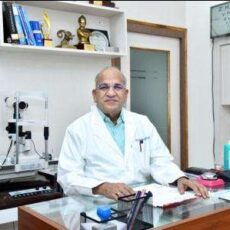Cornea Services
Cornea diseases are very common among diabetics because blood sugar levels affect the body’s ability to heal itself. The most common type of cornea disease is diabetic keratopathy, which causes vision loss in patients with diabetes. Other types include infectious keratitis, dry eyes, and ulcers.
Diabetic Keratopathy
Diabetic keratopathy occurs when there is an imbalance between glucose (blood sugar) and protein in the cornea. This leads to damage to the cells in the cornea, causing them to swell and become cloudy. As a result, light cannot pass through the cornea and the patient experiences blurred vision.
Fungal Keratitis
Fungal keratitis is caused by fungal infections that affect the cornea. These infections usually occur after trauma to the eye, such as injury or surgery. They also can develop due to contact lens use.
Herpes Simplex Virus Infection
Herpes simplex virus (HSV) is one of the most common viruses affecting humans. It is spread through direct contact with an infected individual or through contact with objects contaminated with the virus. HSV infection can cause cold sores, fever blisters, and genital herpes.
Inflammatory Keratitis
There are two main types of keratitis: infectious and noninfectious. Infectious keratitis occurs when there is a bacterial or fungal infection present in the cornea. Noninfectious keratitis occurs without any known cause.
Lamellar Keratoplasty
In order to treat an infected cornea, doctors will perform either lamellar keratoplasty (Lamellar Keraplasty, LK) or penetrating keratoplasty (Penetrating Keratoplasty, PKP). Both procedures involve removing part of the cornea and replacing it with healthy tissue. However, one procedure involves cutting away only the damaged portion of the cornea while the other requires removal of the entire cornea.
Cornea Transplantation Services
Cornea transplantation is a surgical procedure that replaces a damaged cornea with a new one. The donor tissue comes from another part of the body, usually the patient’s own eyes. This type of surgery is performed for people whose corneas have been severely damaged due to injury or disease.
What is Cornea Transplantation?
Cornea transplantation has become increasingly common as advances in medical technology have made it possible to perform this operation successfully. In fact, there are now several different techniques available for performing this surgery.
Who Needs a Cornea Transplant?
If you suffer from severe damage to your cornea, such as when you were born with a condition called keratoconus, then you might need a cornea transplant. This procedure will replace your damaged cornea with an implant that looks and functions just like a natural cornea.
When Should I Have My Eye Surgery?
You should consider having your cornea transplanted if you have any of these symptoms:
• Vision loss
• Blurred vision
• Difficulty seeing at night
What Are the Risks Associated with Cornea Transplantation Surgery?
There are risks associated with cornea transplantation surgery, such as infection, rejection, and other complications. However, these risks are rare. If you do decide to undergo the procedure, make sure to discuss them with your doctor before going through with it.
What Can You Expect After the Procedure?
After undergoing cornea transplantation surgery to replace a damaged cornea, patients will need to wear protective eyewear while healing. They should also avoid direct sunlight and contact lenses until the new cornea has fully healed. Patients who receive transplants from living donors usually heal faster than those receiving transplants from deceased donors.
Meet Our Doctors

DR. KOPAL MITHAL SHARMA
M.S (Gold Medalist). DNB, FICO (London), FRVSVitreo-Retinal Surgeon & UVEITIS Specialist
Make an Appointment
Dr. Sandeep Mithal
MS Ophthalmology, Phaco & Refractive Surgeon & Glaucoma SpecialistDirector & Head Senior Surgeon, Chief Consultant
Make an Appointment
Prof. Dr. Charu Mithal
M.S Ophthalmology,Eye Specialist, Phaco- Refractive & Vitreo- Retina Specialist
Make an Appointment
